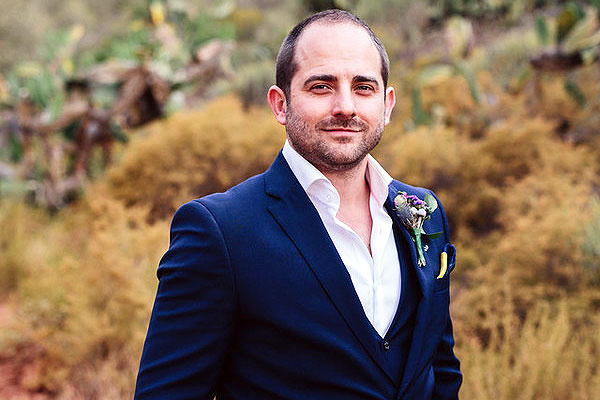
Daniel Trappler, Vice President Transactions & Capital Markets for HTI Consulting.
Though Africa remains a market where hotel real estate investment is typically dominated by development, increasing transactional activity is providing much needed liquidity. However, when it comes to hotel investment in Africa, as with anywhere in the world, various factors and influences are impacting acquisition trends and cycles. “Of these factors, currency fluctuations are but one,” says Daniel Trappler, Vice President Transactions & Capital Markets for specialist hospitality and tourism consultancy firm, HTI Consulting. “Political and economic stability, the threat of
Though Africa remains a market where hotel real estate investment is typically dominated by development, increasing transactional activity is providing much needed liquidity. However, when it comes to hotel investment in Africa, as with anywhere in the world, various factors and influences are impacting acquisition trends and cycles.
“Of these factors, currency fluctuations are but one,” says Daniel Trappler, Vice President Transactions & Capital Markets for specialist hospitality and tourism consultancy firm, HTI Consulting. “Political and economic stability, the threat of terrorism, oil and commodity prices, accessibility and visas; all these remain central issues for tourists, commercial travelers and investors alike.”
“Unsurprisingly, political stability appears to be the primary factor behind more recent hotel transactions in East, West, and South Africa,” says Trappler. “We’re seeing buyers in these markets ranging from funds building their African portfolios and international investors seeking exposure to the sector to hotel owner-operators looking to actively grow and expand their brands.”
“There’s no one-size-fits all scenario with regards to this type of investment, particularly on the African continent,” he explains. “Quite simply, different investors look to different types of hotel assets. Some seek the comfort of an incumbent brand and a management agreement with an international hotel group. Others prefer unbranded hotels where they can benefit from further expanding or entrenching their own brand. Certain investors only consider an acquisition on a low risk profile i.e. there typically needs to be a lease in place. Others look for distressed assets where they can achieve a significant upside by purchasing at a low price, asset managing during a hold period, and selling at a low yield at a point in the future that makes commercial sense to do so,” he says.
“In some cases too, there also exist ‘trophy’ or ‘ego’ investors who buy hotels for the sake of owning them in strategic, high profile cities and ‘Best Destination’ award-winning locations such as Cape Town,” says Trappler. “These investors can typically overpay for hotel assets and not focus on the returns from their investments in the traditional way. Their hotel investments are essentially status symbols promoting their wealth and demonstrating their ability to own a hotel asset in a luxurious destination on rare and unique real estate.”
Developing hotels in Africa is a challenging task but investment opportunities are undoubtedly on the rise. This rise in sentiment is predominantly explained by the lack of quantitative and qualitative supply in some regions, with many hotels not being able to respond to the increasing demand. “Raising the necessary finance remains a key obstacle to investment however,” says Trappler. “Along with having the correctly experienced project team in place in a market that provides adequate demand generators,” he says. “That’s why exposure to the sector is often more easily gained by acquiring existing assets.”
“The hotel investment broker can play a crucial role in the debt finance raising process in Africa (for a hotel acquisition or development), as the hotel investor often doesn’t fully understand the domestic banking environment, and the banks, in turn, are often unfamiliar with the hotel industry,” continues Trappler, noting that “this is why HTI Consulting not only remain close."
Tatiana is the news coordinator for TravelDailyNews Media Network (traveldailynews.gr, traveldailynews.com and traveldailynews.asia). Her role includes monitoring the hundreds of news sources of TravelDailyNews Media Network and skimming the most important according to our strategy.
She holds a Bachelor's degree in Communication & Mass Media from Panteion University of Political & Social Studies of Athens and she has been editor and editor-in-chief in various economic magazines and newspapers.































































































































































































